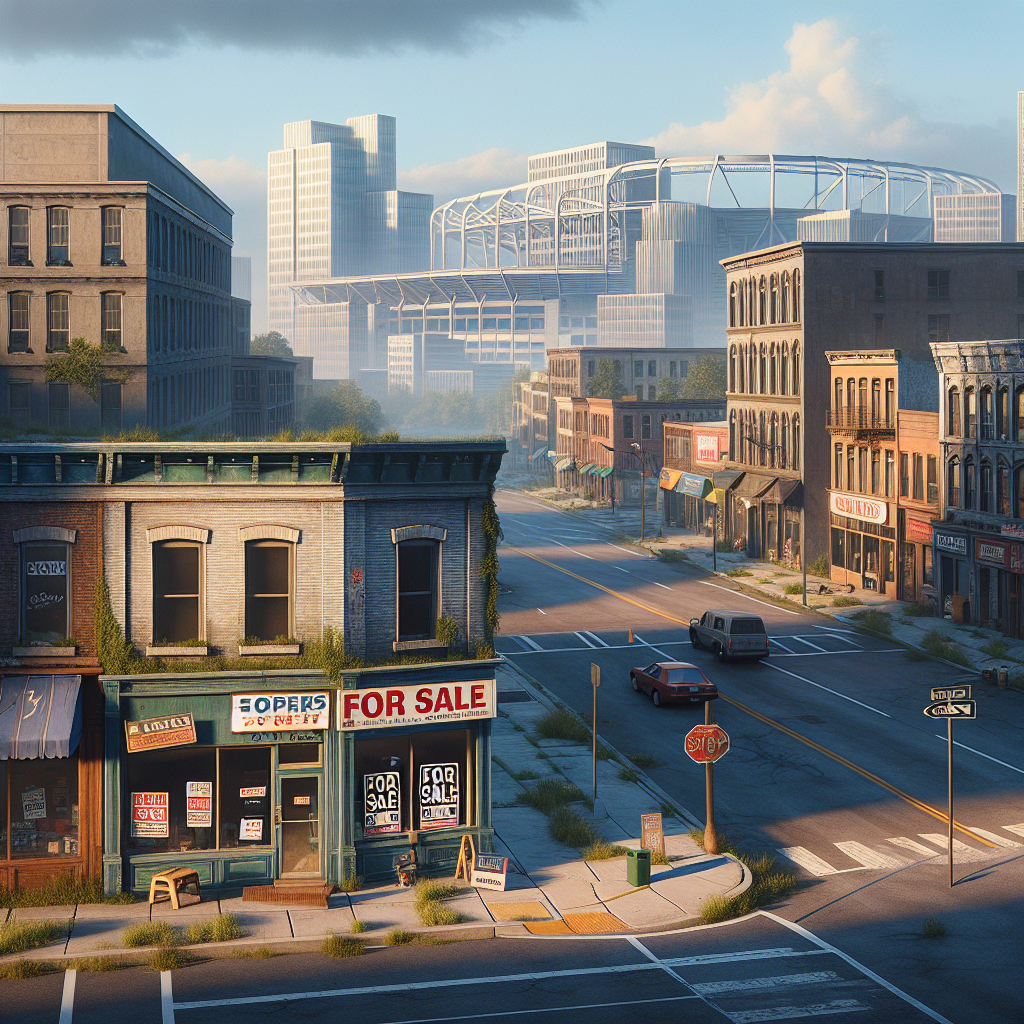
Impact of Sports Venue Developments on Inglewood’s Small Businesses
Introduction
In recent years, the city of Inglewood in Los Angeles County has witnessed a transformative period marked by the introduction of massive sports venues. With the opening of SoFi Stadium in 2020, housing the L.A. Rams and L.A. Chargers, and the more recent unveiling of the Intuit Dome, home to the L.A. Clippers, the area was anticipated to experience an economic revival. However, this promising outlook is not fully shared by many of the city’s Black-owned small businesses.
Challenges Faced by Inglewood’s Small Businesses
While new commercial development and entertainment venues have enriched Inglewood’s skyline, they’ve also introduced significant challenges for local entrepreneurs. Karolyn Plummer, owner of Sweet Red Peach, a dessert shop located near SoFi Stadium, exemplifies this plight. She recalls how her sales plummeted on Super Bowl Sunday, typically a bustling day for establishments near such significant events.
The Traffic Nightmare
Plummer and others have voiced concerns over the burdens this poses, emphasizing that such impediments were not adequately addressed prior to the venues’ development.
City Officials’ Perspective
In contrast, Inglewood’s city officials, including Mayor James Butts, maintain a positive stance regarding these developments. They argue that the sports venues have spurred economic growth, with 3,000 new businesses emerging in the past four years.
The Economic Renaissance
Although the city highlights these benefits, the accompanying challenges faced by local business owners, particularly Black vendors, have sparked an ongoing debate.
Palm Springs: Looking at Historical Context and Resolutions
The situation in Inglewood echoes a broader discussion about the impact of urban development on minority communities, as demonstrated by a recent historical resolution in Palm Springs.
Section 14 Settlement
In a landmark decision, the Palm Springs City Council unanimously approved a $5.9 million settlement for the descendants of families affected by the mid-20th century burnings of homes in Section 14. This effort aims to acknowledge past injustices experienced by Black and Latino communities and represents a move toward rectifying historical wrongs.
Significance of the Settlement
This initiative not only delivers financial reparations but also seeks to preserve the cultural legacy of displaced communities.
Concluding Thoughts
The unfolding narrative in Inglewood sheds light on the dual-edged nature of urban development. While on the one hand, such projects are poised to bolster economic prospects, they can simultaneously marginalize existing communities and businesses. It becomes imperative to forge pathways that balance new growth with sustainable support for local entities and historical preservation.
For Inglewood and places like Palm Springs, initiating a dialogue that incorporates the voices of affected communities is crucial. Aligning development goals with the needs of small businesses and minority residents will help cultivate a more inclusive urban landscape.
Source: https://www.kqed.org/news/12014566/some-inglewood-small-business-owners-near-sports-venues-struggling-to-stay-afloat

